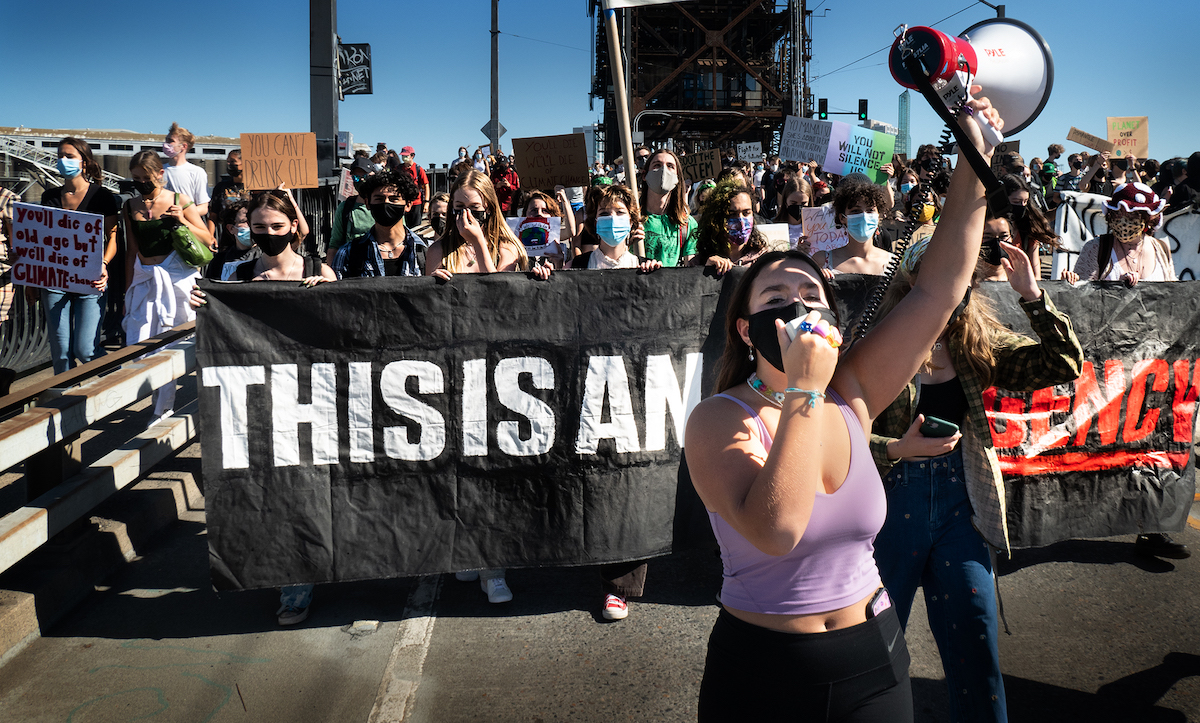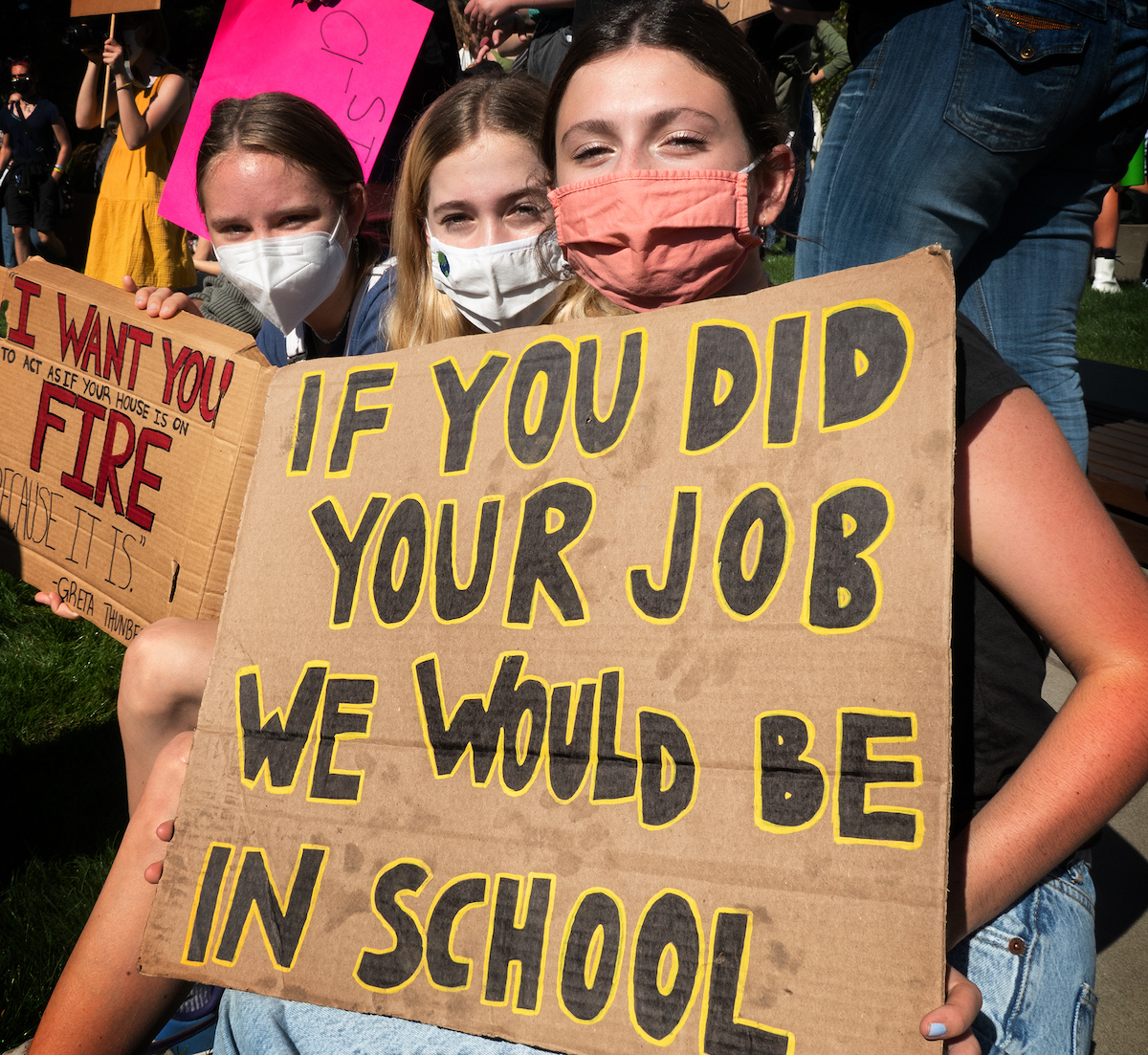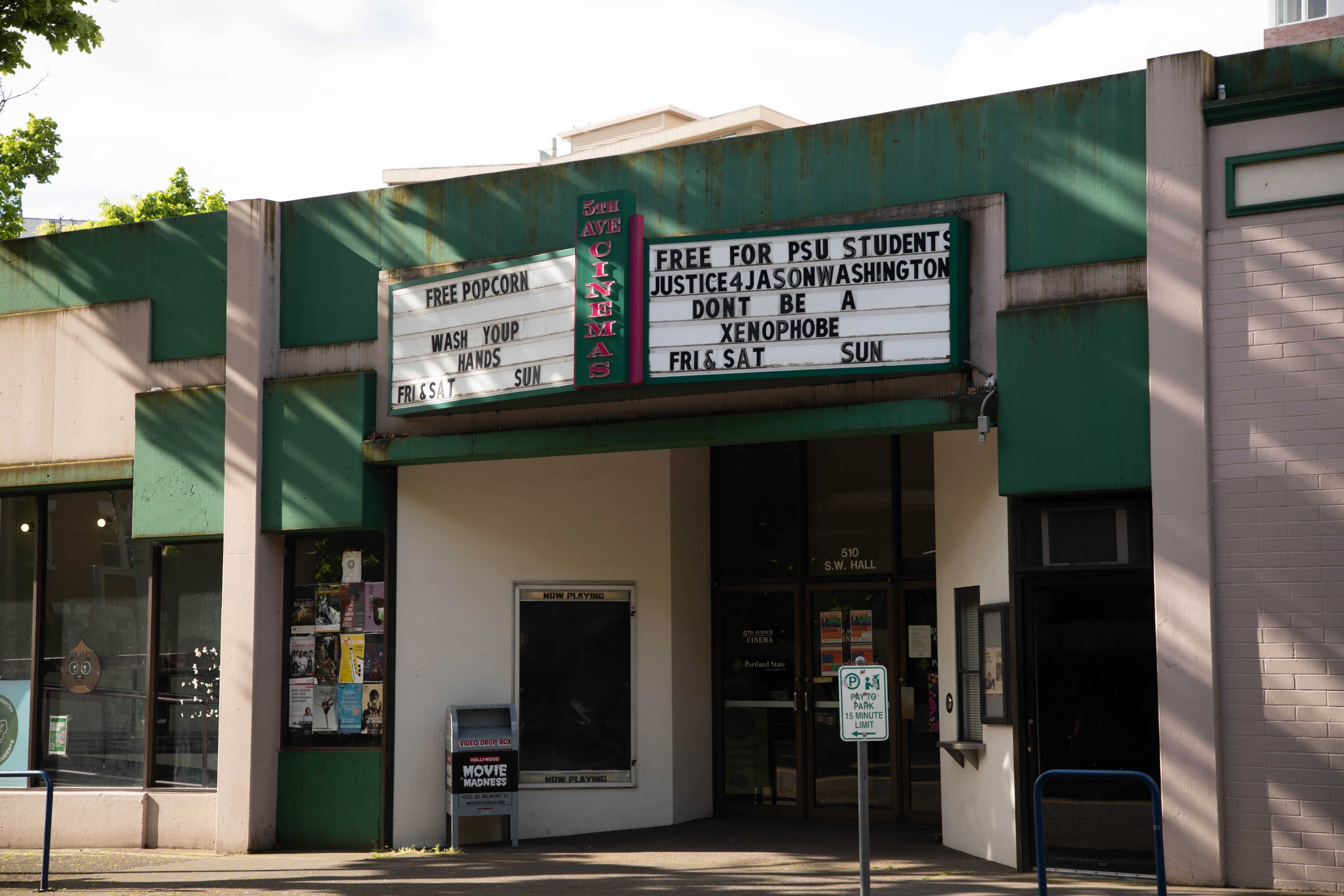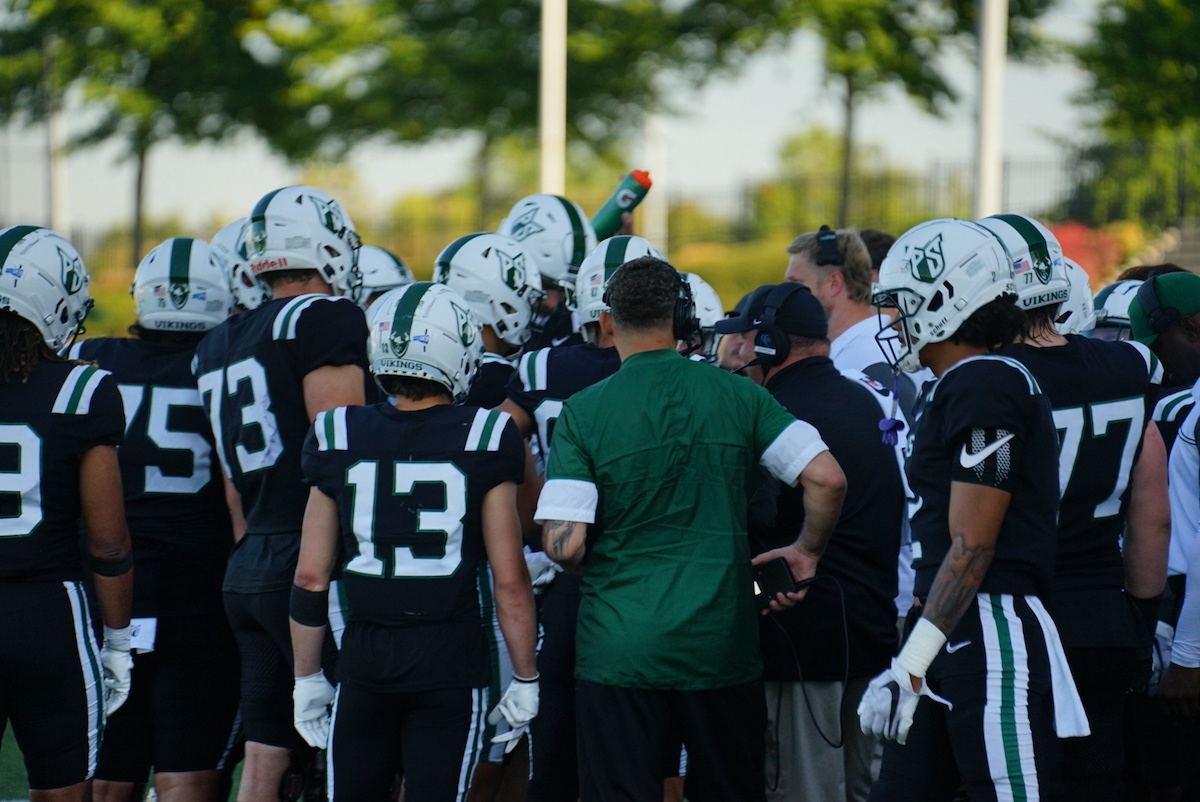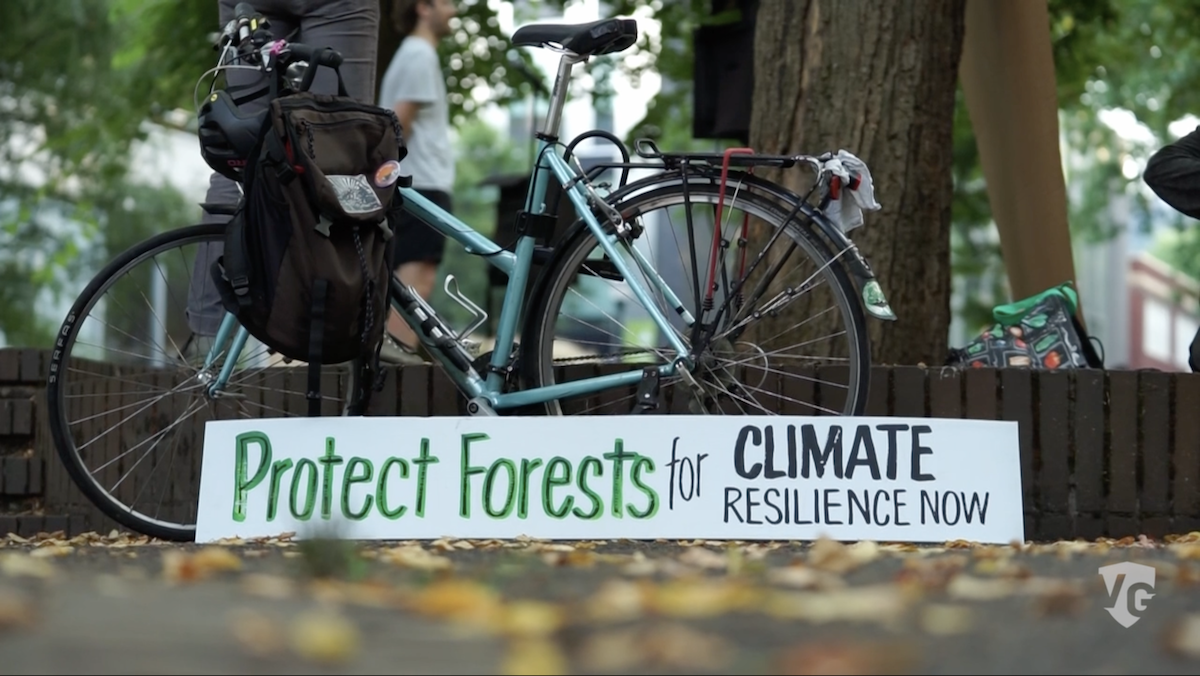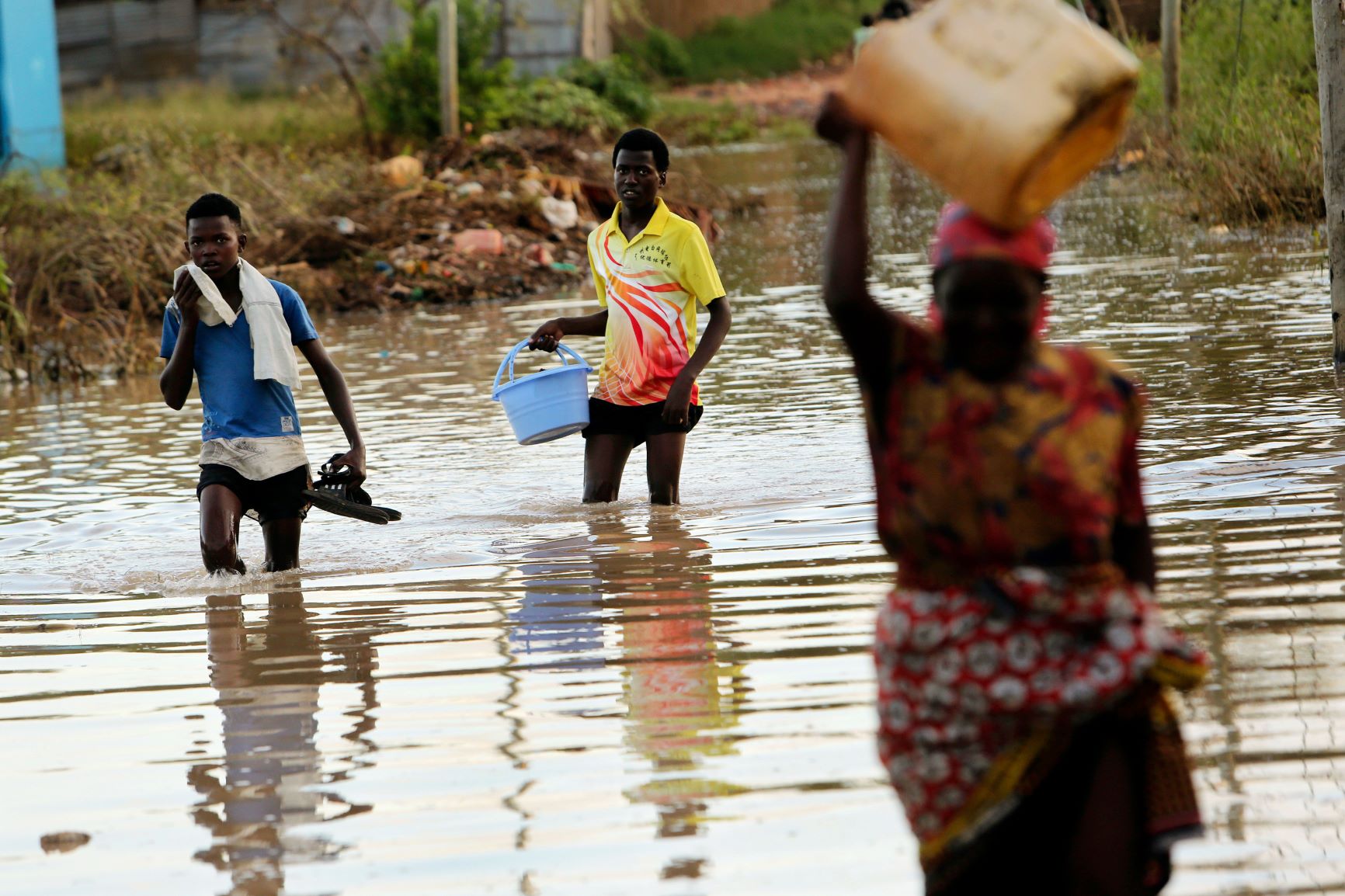The Portland Youth Climate Strike (PYCS) organized on Friday, Sept. 24 to take part in the global movement—a walk out that urged students to leave classrooms across the city to demonstrate the importance this movement has for them.
The Portland strike occurred simultaneously with similar strikes around the world, as students from the Philippines to Berlin and New York City led protests on Friday urging climate action.
PYCS swiftly mobilized the Portland event, as they had been mostly meeting online and working in digital spaces due to the pandemic. Mostly advertised via social media, the event reached a large audience of youth and supporters of the movement that brought out as estimated 2,500 people to the streets of Portland.
When speaking to Adah Crandall of PYCS, she explained it grew larger than they could have imagined. PYCS worked alongside multiple organizations with long standing histories of fighting against climate change—including Sunrise PDX, 350PDX and Extension Rebellion PDX—and organized the event in just under a month.
The organization has indicated they are aware of some of the concerns and issues with leading any sort of large event, especially during a global pandemic. PYCS stated their mission is to work on centering voices of those most impacted, specifically pushing for LGBTQ+—as well as Black, Indigenous, people of color (BIPOC)—to be the face of the movement.
Adah spoke with Portland State Vanguard, discussing how equity plays a role in such a sensitive and important movement. She expressed that, during the downtime of the pandemic, there has been growth in conversation and reflection, including how to center voices without tokenizing, such as providing stipends for speakers when possible as youth typically go unpaid for their labor, and honoring Indigenous, First Nations and Native communities who have been fighting for the earth for centuries.
Discussing equity brought up concerns around accessibility for those who are disabled or use mobility aids, Adah advised prior to the march that a team was canvasing out the road to determine if it was generally accessible for people within these categories. Besides physical accessibility, they also made sure to provide an American Sign Language (ASL) interpreter for speakers during the event, as well.
Recently, the PYCS has found themselves slightly isolated, used to working with the greater Oregon Youth Climate Strike. OYCS is currently inactive, and the PYCS has been working on becoming the face of climate change striking in the Oregon area for youth. Though they’ve accredited so much of their organizing success to social media, Adah confirmed that they do maintain a website and newsletter for those interested in getting involved who may not use Instagram.
When discussing next steps, Adah stated that the organization is incredibly thankful for the turn out of the event on Sept. 24 and that the next couple weeks will be used for debriefing, reflecting and discussing future plans. Being a youth-lead organization, there are concerns which Adah expressed as mostly stemming from the Portland Public Schools (PPS) sending out a message about the event to parents only, leaving organizing students unable to reply.
“There is no point to school if our planet continues to burn and flood and collapse,” said Naomi Hemstreet, a participant in the march. “What is one day compared to our entire futures?”
The parents-only email, which was obtained by Vanguard, included information about the Climate Crisis Response Policy Survey and a note about encouraging students to join the PPS Climate Justice Youth Advisory Group “which serves to advise PPS senior leaders on the future of climate justice efforts in our school district.” The PYCS group was not mentioned in the email.
The email addressed possible safety concerns and the district’s role in working with the youth. “Please talk with your student about this event,” the email stated. “Once students leave our campus for unsponsored events, Portland Public Schools can no longer guarantee their safety.” The email also stated that, unless the student’s school received a signed permission slip or note, the youth were at risk of getting an unexcused absence, or not being able to participate in sports in the afternoon.
“I am saddened by the fact we live in a world so broken that teenagers have to walk out of school to demand something as simple as a livable future,” Adah said, when speaking at the event. “None of us should have to be here today, and I want to thank each and every one of you for showing up despite that.”
When discussing the COVID-19 concerns expressed in the email sent out by PPS, Adah shared with Vanguard that Portland Public Schools has not made her feel safe during the return to in-person schooling this year. With overfilled classes and a lack of seating charts for contact tracing, Adah said she felt safer at the PYCS march than at school.
Additionally, there were peacekeepers present at the strike—people with a long history of mediation and de-escalation tactics—as well as a COVID-19 safety group that ensured folks wore masks and provided extra face coverings and sanitizer.
The event did take place completely outside, following the format of many of the protests and marches in the summer of 2020, related to the Black Lives Matter movement. During those events, a working paper series provided by the National Bureau of Economic Research stated that there was no evidence that urban protests reignited COVID-19 case growth.
While there are concerns of the new COVID-19 variants, PYCS made a goal of providing as safe of an event as possible for the youth. These adaptations highlight the fact that this might very well be the new normal and what might be expected from events in the future.
The demonstration had also asked for city leaders to show up to be a part of the strike and discussion, but the seats reserved for those officials remained unfilled, a disappointment for the students. Rejections ranged from busy schedules to no response at all.
“I’d like to invite any elected officials to come sit in these chairs,” said J.J. Klein-Wolf, a youth attendee. “We invited you here today to sit and protest with us. I’d like you guys to notice no one is sitting in their chairs. Their seats will remain empty until they come up and support the youth.”
The Portland Youth Climate Strike states they will continue to push students and youth of Portland to take action in the fight against climate change. While the elected officials failed to show support on the day of the march, Cassie Wilson released a debrief and list of demands from the organization that aims to emphasize the urgency of their mission—and make ignoring it impossible.
